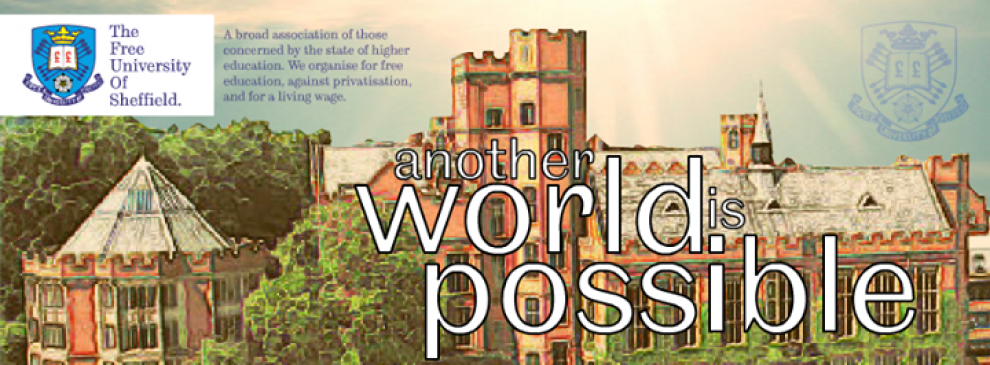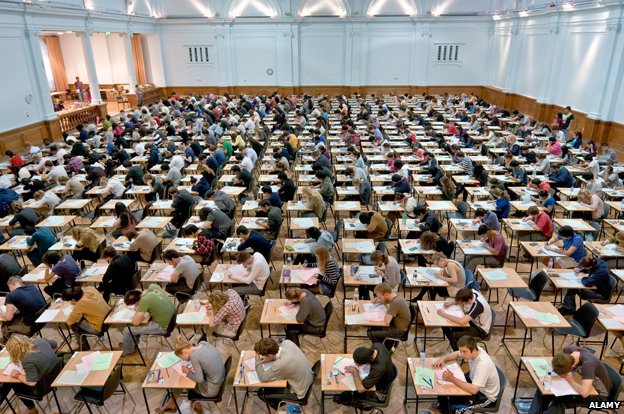Our seventh soup seminar will be at Union St, at 6.30pm on Thursday 24th September. If we could have some help with collecting the vegetables and cooking the soup, that would be great. Please email us at freeunisheff [at] gmail [dot] com. As usual we’ll start cooking at 4pm. Help would be really appreciated. The burden of the care work should be shared, rather than letting it fall on one person’s shoulders.
In the soup seminars we come together to cook and eat food, and discuss how we can act to change society’s problems. We are creating a community of thinkers and activists to come together and work out constructive solutions to the problems we face today. (All food is vegan).
We have set out three principles of the soup seminars: (1) education must serve the needs of society, not the interests of the individual; (2) we cannot leave it up to academics or ‘experts’ to come up with ways to solve our problems – we are all experts; and (3) if we are going to change anything, we must study and act together.
See below for the email sent out to the mailing list, with information on what we discussed last week and what we’ll be discussing next week, including readings. To join our mailing list, please email us at freeunisheff [at] gmail [dot] com.
Hi everyone,
It was great to see some new faces at the soup seminar last week. I hope everyone enjoyed it as much as I did. Our next soup seminar will be at Union St, at 6.30pm on Thursday 24th September. If I could have some help with collecting the vegetables and cooking the soup, that would be great. Either reply to this email or text me on 07584092431. As usual we’ll start cooking at 4pm. Help would be really appreciated. The burden of the care work should be shared, rather than letting it fall on one person’s shoulders.
Scroll down to see what we’ll be discussing next week.
Last week we discussed the role of students and teachers in the modern university, and how these roles might be different in a “free university”. We discussed the “student as producer” project at the University of Lincoln. While many people felt uncomfortable at the language of “productivity”, I think we generally agreed that the aim of the project was admirable: to engage students in the research process and recognise that students can be active creators and can participate in their own learning. This is opposed to the current model of teaching, which sees students as passive and sees teaching as less important than research.
It is worth noting here that Walter Benjamin’s essay, ‘The Author as Producer‘ was a key text when the Student as Producer project was being developed by Mike Neary and others at the University of Lincoln.
Adam also noted how Joss Winn, in his article ‘The Co-operative University: Labour, Property and Pedagogy’, pinpointed as a central problem in the modern university the question of who owns knowledge. In a free university, Winn suggests, there would be no strict division between “student” and “teacher” (or between student, teacher, cleaner, administrator etc.). Anyone could be any of these things at any time. This means people are not restricted to an official role in the university. Furthermore, the official title of “teacher” carries with it the assumption that the teacher owns the knowledge which they pass onto students. In a free university, there would be no official distinction between teachers and students, and therefore no one in particular would have ownership of that knowledge. This idea forms the basis of the Social Science Centre Lincoln. As Noelle mentioned, it is also closely tied to the ideas set out in Paulo Freire’s book, Pedagogy of the Oppressed, in which Freire sets out a model for “revolutionary education” which is based on dialogue between the teacher and student, and a recognition that the student can also teach the teacher a thing or two.
A major theme of our discussion was creativity. We agreed that having a clear and definite “end point” and a strict route for how to get there can often inhibit creativity. As Adam said, a big part of creativity is being able to experiment with new ideas, even if they often lead us into dead ends. We should celebrate exploring these dead ends and making mistakes. Louis drew a comparison with architecture, and how often buildings are seen as “finished” when their occupants move out. Instead of exploring new uses for the buildings, the typical thing to do in this day and age is to demolish the building and put up something new in its place.
I think it would be good to continue this discussion on creativity next week, with a discussion on exams, coursework, and other types of assessment. Think about the following questions:
– Do exams and other types of assessment in the modern university allow for creativity, or are they too restrictive? Does a fear of failure make us scared of being creative or original?
– Do exams encourage last-minute cramming, and is last-minute cramming a bad thing?
– What might assessments look like in a “free university”? Would there even be assessments?
– What does the growing culture of constant assessments say about our society’s attitude towards experimentation, making mistakes, and having freedom in the way we learn?
– What is the link between exams and the job market? Are exams really set up to test our abilities, or are they set up to test how hardworking we are?
I have attached the minutes of the last meeting if you want to catch up on what was discussed in more detail.
Reading
I am struggling to find short articles to read on this topic. If you come across some articles worth sharing, please send them to our email and I’ll send them straight back out again! However, I think there are a couple of things worth reading:
– Section II of Bertell Ollman’s ‘Why So Many Exams?‘
– ‘Wages for Students‘ by The Wages for Students Students
If you’re interested in reading more about this, Harry Cleaver has a reading list online for his Political Economy of Education module, with a section on grading and testing.
Hope everyone is doing well,
Josh

